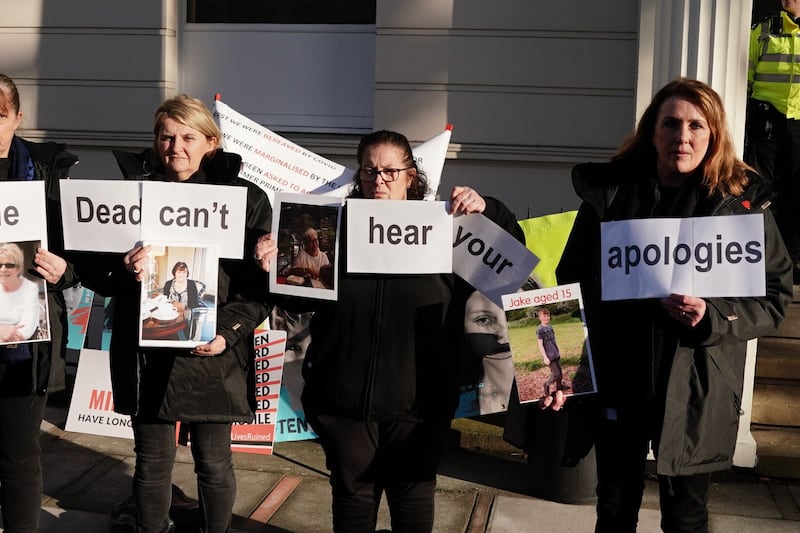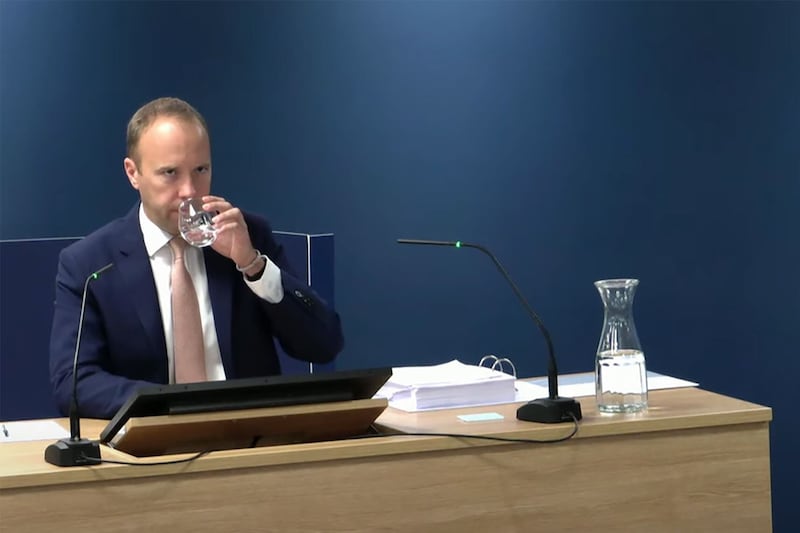Evidence given to the UK Covid-19 Inquiry by Matt Hancock has been called into question by local councils, which insisted his former department had “far more levers” to oversee social care provision than he suggested.
A barrister representing the Local Government Association and Welsh Local Government Association said his clients “simply do not understand” the evidence the ex-health secretary gave to the inquiry.
Last month, Mr Hancock told inquiry chairwoman Baroness Heather Hallett that adult social care was in a “terrible” state of pandemic preparedness, with the Government lacking basic knowledge, including how many care homes were in the UK at the time when the coronavirus struck.
He said that by January 2020 the department he headed up – which he accepted meant he had responsibility to ensure “adequate oversight” for planning and preparedness for a health emergency – did not have a plan in place to identify how many people were in the care sector.
But the MP said the responsibility for ensuring pandemic preparedness in the sector “formally fell to local authorities” – and while he was accountable through his role as secretary of state for health and social care he “didn’t have the levers to act”.
He described the system for running adult social care as “flawed” and said it was in “nowhere near good-enough shape” when the pandemic hit.
He also said he asked to see the pandemic preparedness plans he understood local authorities were required to have in place, and that social care minister Helen Whately “found that there were only two”, which were “wholly inadequate”.
On the final day of the module one hearings, which are focused on resilience and preparedness, Robin Allen KC suggested his clients disagreed with Mr Hancock’s comments.
During closing statements on Wednesday, he told the inquiry: “My clients simply do not understand the evidence of former secretary of state for health, Mr Hancock, who stated that only two councils had plans for pandemic flu, a suggestion they do not believe to be accurate at all.”
Mr Allen said: “And similarly they believe the department had and has far more levers to understand, oversee and to shape social care provision than his evidence suggested.
“To find out the extent of adult social care provision, all he had to do was to speak to the Care Quality Commission with which providers must be registered, or with directors of Adult Social Services, who commissioned care services.”
In future, Mr Allen said local government should be “at the core of all future resilience planning” and “must be treated as a trusted and equal partner by central government”.
He added: “Local government preparedness has been impacted by austerity but this cannot be allowed to occur again.”








